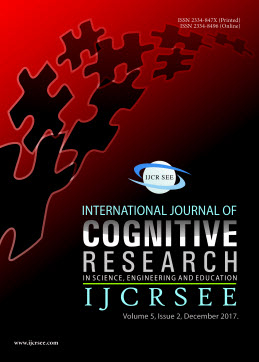STYLES OF DECISION MAKING AND MANAGEMENT AND DIMENSIONS OF PERSONALITY OF SCHOOL PRINCIPALS
STYLES OF DECISION MAKING AND MANAGEMENT AND DIMENSIONS OF PERSONALITY OF SCHOOL PRINCIPALS
Author(s): Anita Azeska, Jasmina Starc, Lupco KevereskiSubject(s): Social psychology and group interaction
Published by: Удружење за развој науке, инжењерства и образовања
Keywords: styles of decision making; management styles; extraversion neuroticism; psychoticism; workplace
Summary/Abstract: This paper explores preference to the style of decision making (managerial, analytical, conceptual and behavioural), (Alan Rowe, 1992), management styles (relationship-oriented leadership and management by objectives), (Fiedler, 1987) and personality traits (extraversion, neuroticism and psychoticism), (Eysenck, 1998). The convenience sample of 61 respondents (principals of primary and secondary schools from Macedonia) were subjected to decision making style inventory (Decision Style Inventory - DSI) of 20 claims, a questionnaire to assess the management style (Least preferred coworker - LPC) composed of 18 bipolar adjectives, and a personality test (Eysenck Personality Questionnaire - EPQ) composed of 90 items in the form of questions. Results show that schools lean towards directive style of decision making with a combination of democratic-participatory style that includes subordinates in the process of decision making. The results also demonstrate that school principals prefer management style motivated by relationships; they are more introverted and emotionally stable. The findings indicate a necessity for a new generation of managers who will be different from the traditional managers. It is evident that the future will require managers with leadership styles different from the traditional in Republic of Macedonia. Given that the school is a basic organisational cell on which the educational system of the country is based, the proposed findings present an occasion for developing new ideas and practices that may yield great results. This would increase the flexibility and adaptive capacity of the school as a modern organisation. Thus, these findings have practical implications as they may direct special training of principals in order to apply the best management style, or style that is most appropriate for certain situations, certainly through coordination of the desired profile of the principal and the business strategy, development and maturity of the organisation.
Journal: International Journal of Cognitive Research in Science, Engineering and Education (IJCRSEE)
- Issue Year: 5/2017
- Issue No: 2
- Page Range: 47-56
- Page Count: 10
- Language: English

